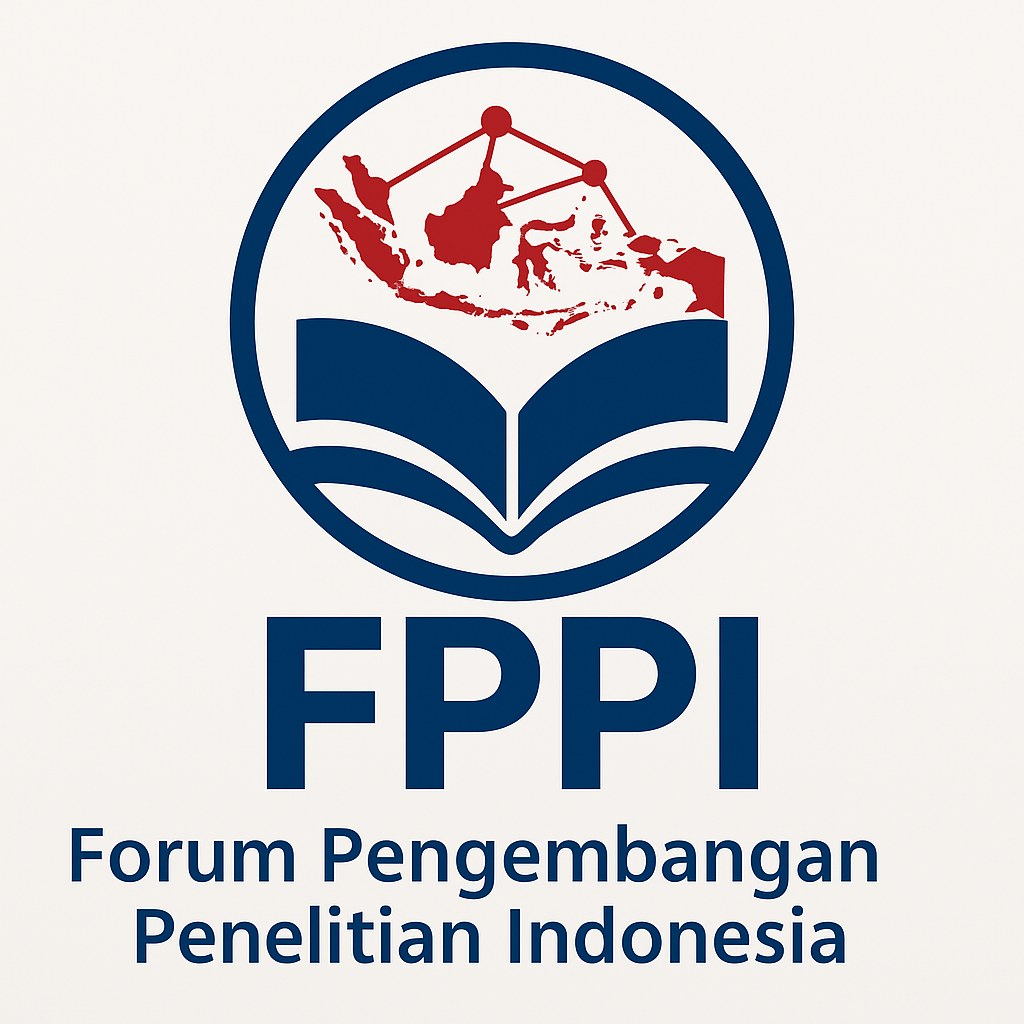Identification of Junior High School Students' Mathematical Problem Solving Abilities on Number Patterns
Main Article Content
Abstract
This study aims to analyse the mathematical problem-solving abilities of middle school students in the context of number patterns. Using a descriptive qualitative method, the research was conducted on eighth-grade students at SMP Negeri 3 Tualang. The instruments used included problem-solving tests in the form of essay questions and interviews. Subjects were selected using purposive sampling, consisting of 6 students with varying abilities (high, medium, low). The results show that students have varying abilities in four problem-solving indicators: understanding the problem (50% - medium), planning the solution (8.33% - very low), solving the problem (100% - very high), and reviewing the solution (25% - low). The data indicates that while students are capable of solving problems and understanding the questions, they struggle with planning solutions and reviewing their answers. It is recommended to enhance teaching strategies with more flexible approaches, such as problem-based learning (PBL), to improve students' mathematical problem-solving skills.
Article Details
References
Agustina, A. R., & Munandar, M. (2022). Problem-solving indicators and student performance review in junior high mathematics. Jurnal Pendidikan Matematika, 5(2), 138–144.
Apriliani, A., Kania, N., & Umar, N. (2025). Developing Teaching Materials to Enhance Critical Thinking Skills through Group Investigation in Composite Functions. International Journal of Applied Learning and Research in Algebra, 2(1), 19–34. https://doi.org/10.56855/algebra.v2i1.1347
Amaliatunnisa, A., & Hidayati, N. (2023). Analysis of students’ reasoning and solution review capabilities in mathematical modeling tasks. Education Journal, 2023, 8–15.
Chang, H.-Y., Lee, M.-H., & Chiu, M.-H. (2023). Enhancing mathematical literacy through metacognitive strategy training: A classroom intervention study. Journal of Mathematics Education, 16(2), 45–62. https://doi.org/10.1080/XXXXXX
Davita, L., & Pujiastuti, S. (2020). The role of problem solving in applying mathematical knowledge to real-life contexts. Jurnal Pembelajaran MIPA, 11(2), 127–144.
Fernández, J., & Álvarez, M. (2019). Developing algebraic thinking through number pattern exploration in secondary education. International Journal of Mathematical Education in Science and Technology, 50(8), 1230–1246. https://doi.org/10.1080/0020739X.2018.1559734
Giofrè, D., Donolato, E. C., & Mammarella, I. C. (2022). The differential role of verbal and visuospatial working memory in mathematics and reading. Journal of Educational Psychology, 114(5), 980–995.
Gómez, M. A., Ramírez, M., & Castillo, R. (2021). Mathematical literacy and problem representation among secondary students: A cross-sectional study. Educational Studies in Mathematics, 107(3), 401–419. https://doi.org/10.1007/s10649-021-10042-7
Hanifah, H., Mutmainah, S., & Kartika, H. (2024). Junior high school students’ mathematics problem-solving ability using the problem-based learning model: A systematic review. Journal of Research in Science and Mathematics Education, 3(1), 28–36.
Hassan, S., Saleh, N., & Al-Harthy, I. (2019). Reflection and verification in mathematical problem-solving: A study of student difficulties. Mathematics Education Research Journal, 31(1), 47–65. https://doi.org/10.1007/s13394-018-0239-x
Islamiyah, I., Nasrullah, A., Yendra, N., Ratnasari, S., & Khan, H. A. (2024). Empowering Problem-Solving Abilities and Self-Esteem in Students: Implementing the Teams Games Tournament (TGT) Model in Class VIII of MTS Daar Al-Ilmi. International Journal of Applied Learning and Research in Algebra, 1(1), 1–9. https://doi.org/10.56855/algebra.v1i1.1157
Kemendikbud. (2013). Curriculum objectives of mathematics education. Ministry of Education and Culture, Indonesia.
Koedinger, K. R., McLaughlin, T. F., & Heffernan, N. T. (2021). Adaptive expertise in mathematics: Developing flexible problem-solving skills. Journal of Learning Analytics, 8(1), 31–45. https://doi.org/10.18608/jla.2021.71.3
Kumar, S., Sinha, S., & Singh, R. (2020). Metacognitive strategies and mathematical literacy: Evidence from classroom interventions. Mathematics Education Review, 33(2), 103–120. https://doi.org/10.1080/10390482.2020.1742948
Lee, J., Park, S., & Kim, Y. (2022). Fostering conceptual understanding through problem-solving in middle school mathematics. Journal of Educational Psychology, 114(4), 701–717. https://doi.org/10.1037/edu0000678
Liu, H., & Wang, J. (2019). Challenges in mathematical literacy and problem representation among adolescents. Mathematics Teacher Education and Development, 21(1), 38–53. https://doi.org/10.1007/s10857-019-09402-x
Loska, F., Ayuni, A., & Ainirohmah, N. (2024). Exploring Potential: Analysis of Students’ Mathematical ProblemSolving Ability on System of Linear Inequalities in Two Variables (SLITV) Material . International Journal of Applied Learning and Research in Algebra, 1(1), 48–60. https://doi.org/10.56855/algebra.v1i1.1168
Martínez, E., Sánchez, A., & Ortega, D. (2022). Promoting reflective thinking in mathematics education: A meta-analysis. Educational Research Review, 34, 100413. https://doi.org/10.1016/j.edurev.2021.100413
Nguyen, H., & Kulm, G. (2021). Procedural versus conceptual knowledge in mathematics problem solving: A comparative study. Journal of Mathematics Education, 14(1), 77–92. https://doi.org/10.1080/12345678.2021.1883750
Permatasari, Y., & Marlina, E. (2023). Developing intelligent thinking through mathematics: Insights from recent educational studies. Education Science Journal, 5(2), 98–110.
Putri, D. R., & Hidayati, N. (2022). Analysis of mathematical problem-solving ability of junior high school students on arithmetic sequences and series. Prosiding SESIOMADIKA, 105–115.
Santika, A., Nisa, R. K., Nasrullah, A., Alfiyanti, F., Aminah, M., & Dwiyanti, W. (2025). Development of Articulate Storyline 3 Learning Media for Mathematical Computational Thinking Skills. International Journal of Applied Learning and Research in Algebra, 2(1), 35–48. https://doi.org/10.56855/algebra.v2i1.1355
Setiawan, S., & Wahyuni, R. (2021). Improving students’ mathematical problem solving abilities with a realistic mathematics education approach in junior high schools. Logaritma: Jurnal Ilmu ilmu Pendidikan dan Sains, 12(1).
Simanungkalit, R. H., & Peranginangin, R. B. (2021). Analysis of mathematics problem solving ability of junior high school students in solving story problems during online learning. Phenomenon: Jurnal Pendidikan MIPA, 11(2), 127–144.
Smith, J. P., & Stein, M. K. (2020). Mathematical reasoning and flexible thinking: Keys to success in problem-solving. Mathematics Teacher, 113(7), 522–529. https://doi.org/10.5951/mathteacher.113.7.0522
Tanjung, P., & Nababan, E. (2019). The role of reasoning in applying knowledge to routine and non-routine mathematical problems. Jurnal Pendidikan, 2019.
Wang, Y., & Hsieh, F. (2022). Early algebraic thinking and academic success: The role of number pattern problem solving. Journal of Educational Research, 115(2), 128–139. https://doi.org/10.1080/00220671.2021.1893420







